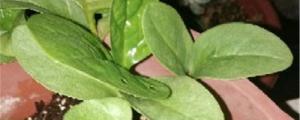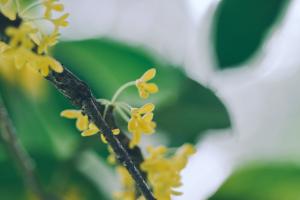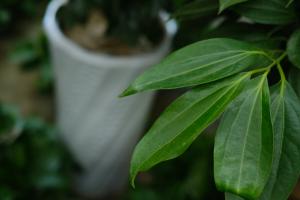How to Trim a Jade Plant
Jade plants have become increasingly popular due to their attractive appearance and easy maintenance. However, over time, these plants can become leggy or develop dead or overgrown branches. Trimming your jade plant is essential to keep it healthy and looking its best. Here's how to do it:
Step 1: Know When to Trim
The best time to trim a jade plant is in the spring or summer when it's actively growing. Avoid trimming during the fall or winter as the plant is in a period of dormancy. Additionally, never trim your jade plant if it's stressed, diseased, or not growing well.
Step 2: Gather Equipment
To start trimming your jade plant, you'll need a pair of sharp scissors or pruning shears. Ensure that the tools are clean and sterile to prevent the spread of diseases. You can sterilize the tools by wiping them with rubbing alcohol or a bleach solution.
Step 3: Identify What to Trim
Before you start trimming, identify which branches or leaves need to be removed. Remove any dead or yellowing leaves or branches. Additionally, trim any leggy or overgrown branches. You can also cut back any long stems to promote bushier growth.
Step 4: Start Trimming
While trimming your jade plant, it's important to make clean cuts at a 45-degree angle to prevent the plant from developing diseases or rot. Cut directly above the leaf node, which is the area where the leaf attaches to the stem. Avoid leaving stubs as they can become entry points for infections.
Step 5: Monitor the Plant
After trimming, monitor your jade plant for any signs of stress or infection. If you notice any issues, such as wilting or discoloration, take immediate action to remedy the situation. Regular monitoring will help you identify problems early on and maintain the plant's health.
In conclusion, trimming a jade plant is a simple, yet essential task that can promote healthy and attractive growth. By following the steps outlined above, you can help your jade plant thrive and enjoy its beauty for years to come.

 how many times do yo...
how many times do yo... how many planted tre...
how many planted tre... how many pine trees ...
how many pine trees ... how many pecan trees...
how many pecan trees... how many plants comp...
how many plants comp... how many plants can ...
how many plants can ... how many plants and ...
how many plants and ... how many pepper plan...
how many pepper plan...































